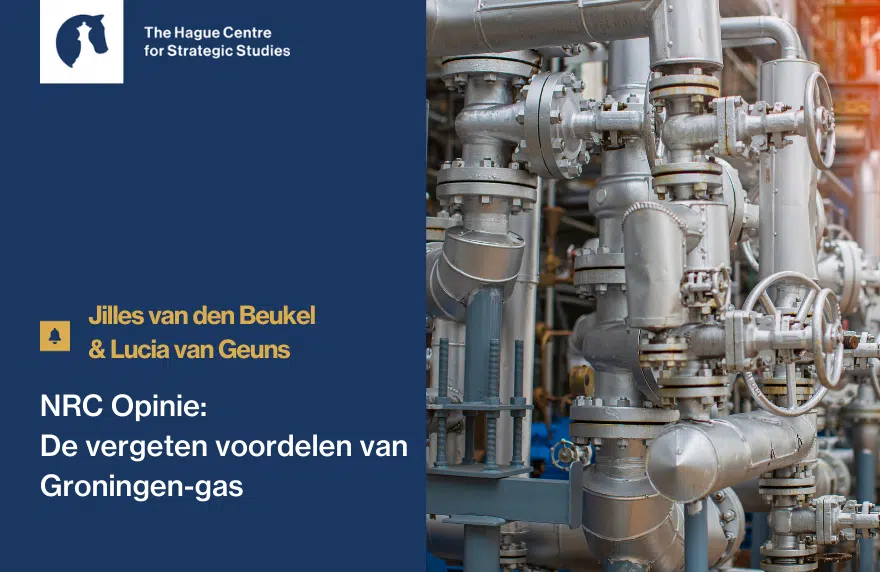During this fifth edition of the Project Cargo Summit (PCS), Lucia van Geuns of The Hague Center of Strategic Studies, gave a presentation covering the global energy context, the current energy crisis and the new geopolitical landscape that has devolved from Russia’s illegal invasion of Ukraine.
“Energy transitions are unpredictable and take time. There is no one-size-fits-all,” she began. As wind and solar power develop, it nevertheless seems like fossil fuels will not be going away any time soon. “Achieving net zero emissions by 2050 will require nothing short of the complete transformation of the global energy system.”
The Energy Trilemma
The ‘energy trilemma’ is at the core of any energy policy. This means that an energy system must be sustainable, secure, and affordable. “In the last few years, especially in Europe, the emphasis on sustainability has been very high,” she explains. Today however, affordability and security have become a much more salient issue. “The world has changed. A new age of energy insecurity occurred with the war started by Russia. You see a roller coaster of a market, the highest oil prices seen since 2014, and a perfect storm as far as the global gas market is concerned, and prices which have spiked to record highs.”
The global power market is also in a volatile state, as renewables gain market share and governments step up decarbonization policies to boost energy security and cut emissions. “What we see is that the world’s energy security is about to be transformed, but energy insecurity is likely to be here to stay.”
Replacing Russian Gas
As a result of the conflict, the European Union has launched the REPowerEU plan to reduce gas dependency on Russia by 66% this year. Replacing gas is difficult. The question is now if there will be enough Liquified Natural Gas (LNG) to go around this winter, and in the winters to come. “This will make for a hard winter in Europe” as stated by Rystad Energy in May 2022. “The stage is set for a sustained supply deficit, high prices, extreme volatility, bullish markets and heightened LNG geopolitics.” comments van Geuns. Also, in terms of exploiting novel resources, LNG coming from African countries like Nigeria, Egypt and Mozambique is still years away.
July 2022 marked the first month during which the EU imported more LNG from the United States (US) than they did natural gas via pipeline from Russia. Because Europe is in general paying a higher price for LNG, supply is bypassing many countries like Pakistan or Bangladesh for the EU market. “We must also keep in mind that Russia unilaterally restricting export flows of not just pipeline gas but also LNG, remains a possibility.” adds van Geuns.
Oil Sanctions
There is already a boycott on Russian maritime oil in the US and United Kingdom (UK). In December, the EU will boycott crude oil imports, and in January of next year, oil product imports. “The extent of the disruption to Russian production systems has so far been limited because they find all kinds of ways around it, like selling their gas as a discount to India or China,” explains van Geuns. However, this will likely change with the EU boycotts, which will bring even more uncertainty and price volatility.
It will also lead to new trade patterns. “Russian crude oil will go more to the East, India, China, but also the middle east. That is then converted into oil products, which find their way back to Europe in the form of Diesel for example.” Also, new trade practices are likely to be observed, “for instance blending, ship to ship transfers, a segmented market of products of Russian origin versus products of non-Russian origin.”
A New Energy Order
Three decades after the fall of the Iron Curtain, “Geopolitics are taking centre stage once more. Most likely, it is the end of a time of open markets and globalisation.” states van Geuns. “The Western world slammed the door on Russia,” she continues, “and it will be some time before it opens again.” “The US is the new energy power, while China remains heavily reliant on imports. Shale and LNG are strategic assets for the US. (…) We are going towards a new energy order. Transition will not be smooth and orderly,” she concludes. The speed and success of the energy transition therefore will depend on policy choices, international relations, technological breakthroughs, and infrastructure development.
Bron: Project Cargo Journal, 30 sept 2022




